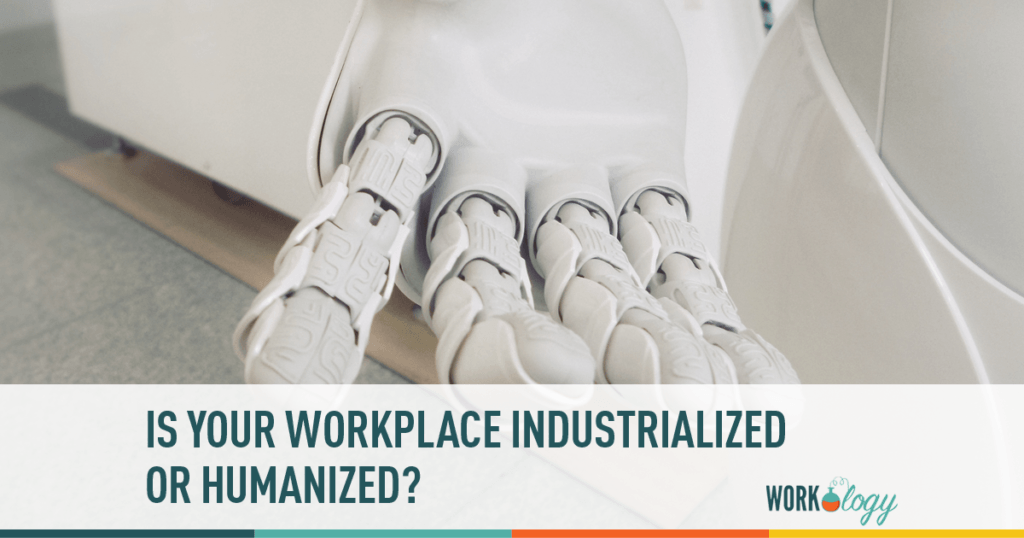This week on Blogging4Jobs, we are focusing on the theme Man Versus Machine sponsored by 1 Page Proposal. Within this world of social media, social recruiting and HR technology, it’s easy to get caught up in the cool, the fads and the next big thing. To follow the entire series make sure to bookmark our Man vs. Machine category for all the latest blog posts or follow us on twitter #humanvsmachine.
Are you a PC or a Mac?
You remember those commercials, right? Talk about the ultimate way of “humanizing” your company. Apple personified it’s product as a hip young person you could relate to (at least, who their target market would relate to), and personified their competitor as a stiff, boring spreadsheet geek who didn’t “get it.” (Conversely, for awhile now Apple’s competitors have been making iPhones and iPads look like old tech that Mom and Dad like).
Social media and the internet have changed the way consumers feel about brands, and it’s changed the way people make purchasing decisions. Humanizing your brand is kind of the thing to do if you want to stay relevant.
How do you do that, though? Obviously it’s not just a matter of firing up the Twitter machine and cranking out YouTube videos.
Is Your Workplace Industrialized or Humanized?
Humanizing your company starts at the foundation. I think it starts with your workplace culture and the way you treat your employees. Even more basic than that; it starts with the way you think about how work gets done.
Park Howell was talking about this very thing, and I loved this list he made to contrast Industrialized vs. Humanized companies. You can see why my ears perked up, so to speak, when I saw the first line:
9-5 vs. 24/7.
Cold industrialized businesses are trapped in the old-fashioned constraints of 9-5, while personable, humanized companies are living in the 24/7 digital age of social communication.
Here’s what Howell has to say about the book that inspired his list, Humanize: How People-Centric Organizations Succeed in a Social World:
[Humanize] explores how corporations and large organizations are trapped in antiquated management practices that are more than 100 years old. These “Best Practices” were developed as we industrialized America and overlaid the same assembly line thinking to how we treat employees, customers and the community.
It’s all about command and control. Centralized thinking. On a “Need to know” basis. “You’re an important cog in our machine.” Etc.
Standing Ovation
Exactly. Companies can talk about utilizing social media and building trust and connecting with their customers until they’re blue in the face. The businesses who really get it are the ones giving their employees freedom and autonomy to get the work done whenever, wherever, and however gets the best results.
To fully realize this kind of workplace culture, however, we have to move beyond telework and flexibility programs. It takes a complete focus on results, and only results. Part of humanizing a company is letting go of paternalistic management practices which focus on controlling time and physical presence as a replacement for results.
What do you think of Howell’s list? Does your company fall on the industrialized side, or the humanized… or somewhere in between?
Special thanks to this week’s theme sponsor, 1 Page Proposal. Learn more about their revolution of Human vs. Machine by clicking here or by visiting the hash tag on Twitter #humanvsmachine.











One Comment
I don’t quite get it how being task-oriented and result-oriented makes you fall on the humanized side. Although, I think we ought to admit that no company is ever people-oriented, even if they say so, it’s not true. Companies aren’t concerned about the fulfillment of their employees, they’re only concerned about results. Yes, it makes them task-oriented, but it doesn’t bring them to the humanized side.
Comments are closed.